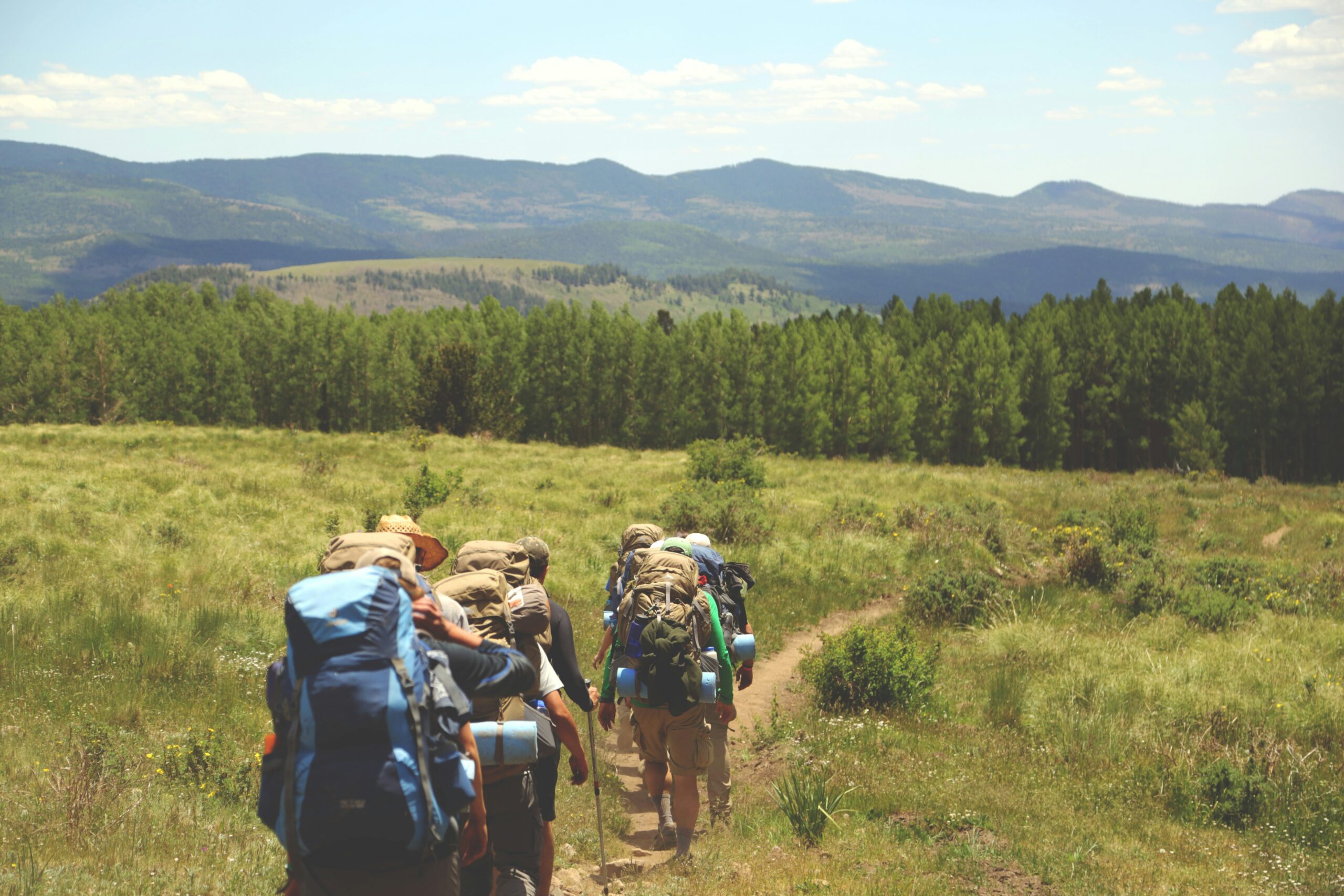
In a world where our days are often consumed by screens, schedules, and the rush of modern life, hiking offers something beautifully simple: movement, nature, and presence. Whether you’re climbing rugged mountains or strolling through a nearby park trail, hiking provides more than just fresh air—it’s a powerful boost for both physical and mental well-being. Let’s explore how this timeless activity can transform your health, one step at a time.
1. A Natural Workout Without the Gym
You don’t need fancy equipment or a gym membership to get a great workout. Hiking engages your entire body—from your calves and quads on the climbs to your core as you balance over uneven terrain. Even moderate trails can help burn hundreds of calories per hour, improve cardiovascular endurance, and strengthen muscles in ways that treadmill walking can’t replicate.
The beauty is in the variety: flat forest paths offer gentle, sustained activity, while steeper trails challenge your heart and lungs like a cardio session. And because you can choose your trail difficulty, hiking is accessible for beginners and seasoned athletes alike.
2. Breathing in Fresh Air Does Wonders
Most of us spend the bulk of our time indoors, often in recycled air. Hiking pulls us out into wide-open spaces where trees and plants naturally purify the atmosphere. Breathing fresh, oxygen-rich air improves lung capacity and can even lower blood pressure.
There’s also a subtle but powerful psychological effect: when you take a deep breath on a quiet trail, it feels different—cleaner, calmer, almost like your mind exhales along with your lungs. Many hikers describe this as their “reset moment.”
3. Nature’s Stress Relief Is Free
One of the most remarkable benefits of hiking is its ability to melt away stress. Being surrounded by trees, birdsong, and flowing water triggers a physiological relaxation response. Studies show that spending time in green spaces lowers cortisol levels, the body’s primary stress hormone.
You don’t have to hike for hours to feel the effect. Even a 30-minute walk on a local trail can leave you calmer and more grounded. Many people find hiking to be their version of meditation—steady footsteps, natural rhythms, and zero notifications.
4. A Boost for Mental Clarity and Creativity
Have you ever noticed how your best ideas often arrive while walking? Hiking takes that effect to another level. With fewer distractions and more sensory input—like crunching leaves underfoot or the rustle of wind through branches—your mind naturally declutters.
This mental clarity often leads to bursts of creativity. Writers, entrepreneurs, and problem-solvers alike use hikes as “thinking time,” returning with fresh perspectives. Even if you’re not seeking inspiration, the sense of mental lightness after a good hike is hard to beat.
5. Building Stronger Bonds Through Shared Trails
While solo hikes have their own magic, hitting the trail with friends or family can deepen connections. Away from digital distractions, conversations flow more naturally. You share challenges—like a steep hill—and small triumphs, like reaching a viewpoint together.
Many families use weekend hikes as quality time that blends exercise with bonding. Even group hikes with strangers can lead to meaningful friendships, united by a shared love of the outdoors.
6. Hiking as a Mindfulness Practice
Hiking gently invites you to be present. When you’re focusing on where to place your feet, listening to birds, or noticing sunlight filtering through trees, you naturally enter a state of mindfulness. Unlike sitting meditation, it doesn’t require you to stay still—movement and awareness happen together.
This mindful quality can reduce anxiety and overthinking. For many people, the trail becomes a space where they can “switch off” from the noise of everyday life and simply be.
7. Accessible Adventures for All Ages
One of the greatest things about hiking is how inclusive it is. You can find trails for every fitness level, age, and location. City parks often have well-maintained paths perfect for beginners and families with children, and for those seeking more challenge, national parks and mountain ranges offer endless possibilities.
Even people recovering from injury or trying to get back into shape can start slowly with short, flat trails. The flexibility makes hiking one of the most sustainable forms of exercise over a lifetime.
8. Turning Hiking Into a Lasting Habit
The benefits of hiking build over time, and the best way to make it a lasting part of your life is to start small and stay consistent. Pick a day each week, find a local trail you enjoy, and treat it like a standing appointment with yourself.
Over time, you can explore new trails, increase distances, or add gentle elevation. Some hikers keep journals or photos to track their journeys, which can be incredibly motivating. Others join hiking groups to stay accountable and discover new routes. However you approach it, consistency turns occasional walks into a rewarding lifestyle.
Final Thoughts
Hiking is more than just a walk in the woods—it’s a holistic way to care for your physical health, calm your mind, and reconnect with what matters. Whether you’re lacing up your boots for a weekend adventure or slipping on sneakers for a nearby trail after work, every step you take is a step toward better well-being.
So, the next time stress builds or energy dips, consider this simple prescription: step outside, find a trail, and let nature do the rest.